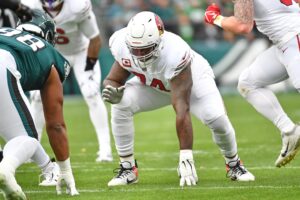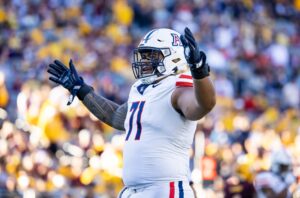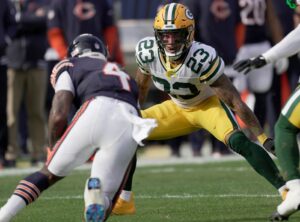Because he hasn’t yet exhibited any signs of brain damage himself, Dallas Cowboys owner/general manager Jerry Jones refuses to accept the science showing links between concussions and neurological disorders.
Jerry Jones Denies Concussion Science
In a Sports Illustrated article, Jones explains his reasoning for choosing to propagate the erroneous message that football can’t lead to brain damage.
“I recently I had a CAT scan done at MD Anderson Cancer Center under an assumed name,” Jones said. “Afterward, the radiologist said, ‘I noticed your age. The reason I came down – and here he called me by my assumed name; he didn’t know who I was – was that you have the brain of a 40-year-old.’ My other doctors were in the room; so was my wife. I’ve got some witnesses. The point is, I was a fullback and a pulling guard. I used my head all the time, and I played football a long time. And that had no impact.”
Apparently in Jones’ mind, if one person played football and hasn’t yet developed any neurological disorders, that’s proof that there’s no correlation between football and brain damage.
Unfortunately for Jones, the large body of evidence disagrees with him. Even NFL employees have admitted that a link between concussions sustained while playing football and the neurological disease chronic traumatic encephalopathy (CTE) exists. Jones’ statements suggest that there may be an element of ignorance when it comes to the science.
Where Jones’ Comments Miss the Mark
What Jones may not understand is that the evidence merely points to a strong correlation between concussions and CTE. As anyone who understands the scientific process knows, correlation doesn’t necessarily equate to causation. There are many factors, many of which are unique to the individual, that can play a part in whether a person develops neurological disease, and if so, to what extent.
Additionally, just as one case in which playing football didn’t seem to lead to significant brain damage can’t prove that there is no link between the game and the symptoms, one case in which the two stimuli seemed to correlate doesn’t prove a widespread correlation. It’s true that the amount of evidence is growing, but it isn’t yet sufficient to make the broad claim that Jones is refuting. It’s easy to understand why Jones wants to refute claims that haven’t even been made, however.
What Jones is Guarding Against
As the owner of an NFL franchise, and the league’s most lucrative at that, it’s obviously in Jones’ best interest for the game to be fiscally healthy and viewed in a positive light in the court of public opinion.
Publicly acknowledging a strong correlation between playing football and brain damage would be detrimental to the image of football in the public eye, which could have many financial ramifications. Lawsuits brought against the NFL would be more likely to result in damages being awarded to the plaintiffs. Programs for adolescents and children could drop in number, causing the quality of the game in the NFL to deteriorate, and potentially harming the profit margins of the league.
While Jones’ reasons for refuting the science behind the link between playing football and neurological disorders is logical from a business perspective, despite how morally questionable that is, his reasoning behind this statement of denial isn’t just contrary to the evidence. It’s downright laughable.






